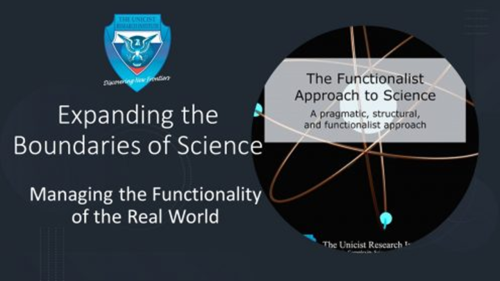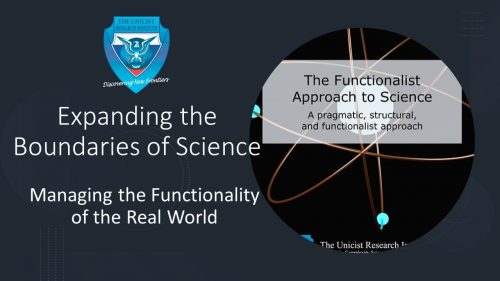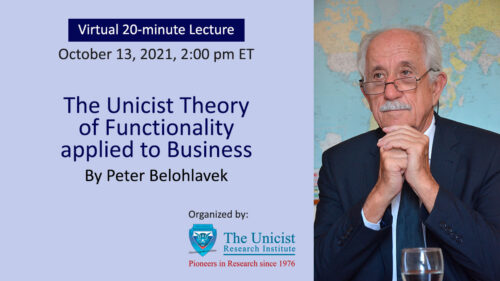The Law of Possibilities – The Driver of Personal and Institutional Expansion
Catalysts Open Possibilities
Social catalysts open possibilities and accelerate processes. The use of catalysts in the social, economic, and business fields for more than 40 years, allowed the discovery of the Law of Possibilities that underlies the successful cases and enables its integration in Unicist AI and applications of generative AI, to simplify growth processes.
The use of catalysts is essential to open possibilities to expand or manage innovations.
Possibilities are Based on Potential Energy
Possibilities are real when there is the necessary potential energy available to match them. Possibilities are linked with actions and are an integral part of the real world; theoretical possibilities, by contrast, belong to thought experiments or psychological games. Functionally, possibility is a source of potential energy that, when unlocked, produces specific outcomes. This potential energy is managed using unicist binary actions.
The Timing of Binary Actions in Managing Possibilities
Unicist binary actions, grounded in the functionalist principles of an entity, consist of two synchronized actions: one opens possibilities, and the other ensures results. This process involves using the first action to create a reaction that opens a possibility, necessitating the second action to conclude the process without triggering a further reaction. The precision and timing of these actions are crucial in generating success.
The Law of Possibilities
A possibility exists when there is an “empty” space based on a latent need, a source of potential energy that can be used to satisfy this need, and a way to release the potential energy.
“Empty” space means that the space is part of a system but is not part of its present functionality although it might contribute toward a superior level of effectiveness.
Latent needs imply that something unknown can benefit the functionality of a system without changing the comfort zone of those involved.
The release of the potential energy implies that there is a pathway to integrate the “empty” space with the satisfaction of latent needs.
In the real world, including the business world, catalysts are natural ways to open possibilities. Catalysts exert influence and have the necessary timing to manage binary actions to satisfy the latent of a specific environment. This approach was developed by Peter Belohlavek at The Unicist Research Institute.
About Potential Energy, the Cornerstone of Possibilities
Potential energy, in traditional terms, is basically stored energy an object has due to its position, configuration, or state. It’s like having energy in reserve, waiting to be released. There are different types of potential energy, but the main idea is that the object can do work because of its current situation.
For instance, imagine a ball held high above the ground. The ball has potential energy due to its height relative to the ground. When you release the ball, that stored energy gets converted into kinetic energy (the energy of motion) as the ball falls.
Potential energy in terms of the unicist approach is the stored energy of an entity that is able to produce consequences in the environment if there is a way to release it.
- Stored Energy: Your definition emphasizes the “stored” nature of potential energy, which is a key aspect. It’s not actively causing change, but has the potential to do so.
- Consequences in the Environment: This aligns with the idea of potential energy causing change within a system. The consequences can be physical (like a falling object) or more abstract (like a brand influencing a purchase decision).
- Release Mechanism: In physics, this might be removing a barrier or applying a force. In a broader sense, it could be about creating the right conditions or triggering events for the potential energy to be realized.
Potential energy exists wherever energy can be stored. It is present in physics, chemistry, businesses, education, art, and any area where energy can be stored and released to produce consequences. Potential energy influences outcomes without assessing their functionality. Both bombs and hospitals possess potential energy.
The opening of possibilities involves using catalysts to expand possibilities by addressing latent needs and possessing the necessary potential energy to produce predefined results. Unicist binary actions are the tools employed to both expand and manage these possibilities.
The Unicist Research Institute
Artificial Intelligence Interpretations:
ChatGPT Interpretation
The exploration of possibilities, as detailed in the research led by Peter Belohlavek at The Unicist Research Institute, offers a fascinating perspective on growth and development across various domains, including social, economic, and business sectors. This approach hinges on the concept of potential energy and its transformation into tangible outcomes, underscoring the intrinsic link between possibilities and action.
The Law of Possibilities and Its Implications
The Law of Possibilities, as outlined, rests on the existence of an “empty” space characterized by a latent need, coupled with a source of potential energy that can be mobilized to meet this need, and a viable pathway for the release of this energy. This law essentially posits that possibilities emerge from the confluence of unmet needs and the potential to fulfill them, provided there is a mechanism to unlock the stored potential energy.
Catalysts: The Key to Unlocking Possibilities
Catalysts play a pivotal role in this framework by facilitating the release of potential energy to satisfy latent needs. Their influence and timing are crucial for managing binary actions that address the specific requirements of an environment. In business and other fields, understanding and employing catalysts effectively can dramatically accelerate growth and innovation, making it possible to achieve outcomes that might otherwise remain out of reach.
Potential Energy: The Core Concept
The concept of potential energy is central to this discussion. It represents the stored energy that an entity possesses, which can lead to impactful outcomes when appropriately released. This idea extends beyond the physical sciences to encompass various fields, including business and social sciences, where potential energy can manifest as intellectual, financial, or social capital.
Real-world Applications and Impact
Applying these concepts in real-world scenarios can significantly impact organizational growth, innovation, and effectiveness. By identifying latent needs and unlocking the potential energy to meet these needs, organizations can create new value and drive progress.
In conclusion, the exploration of possibilities as outlined by Peter Belohlavek and the Unicist Research Institute offers a compelling framework for understanding and driving growth across various domains. By focusing on the latent needs, potential energy, and the role of catalysts, this approach provides valuable insights into unlocking new opportunities and achieving sustainable development.











